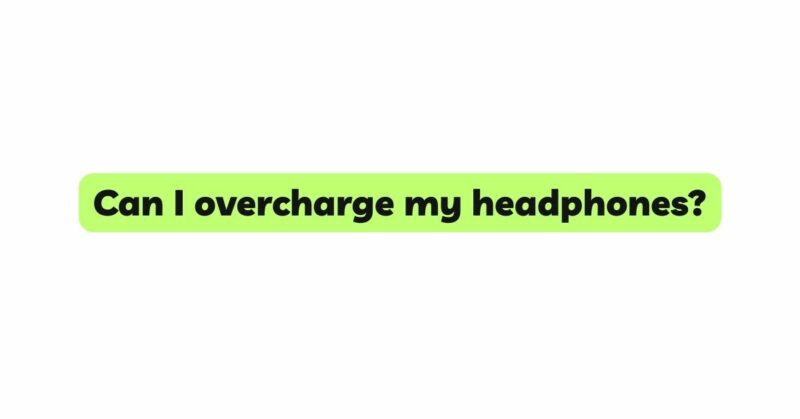As wireless headphones have become an indispensable part of our daily lives, it is only natural that questions arise about the intricacies of their charging process. One frequently asked question is whether headphones stop charging once they reach full capacity. In this article, we will delve into the charging mechanism of wireless headphones, particularly those equipped with lithium-ion (Li-ion) batteries, to uncover the truth behind whether headphones do indeed stop charging automatically. Understanding this process is crucial for optimizing battery health and performance, ensuring a seamless and long-lasting audio experience.
- The Charging Process for Wireless Headphones:
Wireless headphones, like many other electronic devices, rely on rechargeable batteries to power their operation. These batteries are generally Li-ion batteries, known for their superior energy density, lightweight design, and reduced self-discharge rates. The charging process involves supplying electrical energy to the battery, which is then converted and stored as chemical energy for later use.
- How Lithium-ion Batteries Work:
Lithium-ion batteries function based on the movement of lithium ions between the positive and negative electrodes during charging and discharging. When connected to a power source, the lithium ions move from the positive electrode to the negative electrode, storing energy within the battery cells.
- Advanced Safety Mechanisms in Li-ion Batteries:
Modern Li-ion batteries are equipped with advanced safety mechanisms to protect against overcharging and ensure optimal battery health. These safety features include:
a) Voltage Regulators: Headphones are designed with voltage regulators that control the voltage level during charging, preventing excessive voltage from reaching the battery.
b) Smart Charging Circuits: Most contemporary headphones feature intelligent charging circuits that automatically cease charging once the battery reaches full capacity. This automatic cut-off prevents overcharging and protects the battery from potential damage.
c) Deep Sleep Mode: Some headphone models activate a low-power deep sleep mode once the battery is fully charged. This feature minimizes energy consumption and reduces the risk of battery damage caused by prolonged charging.
- Do Headphones Stop Charging Automatically?
The answer is yes. Modern wireless headphones equipped with Li-ion batteries are designed to stop charging automatically once the battery reaches full capacity. This automatic cut-off mechanism ensures that the battery is not exposed to continuous charging, which could lead to potential degradation over time.
- Practical Tips for Battery Optimization:
Although headphones automatically stop charging once the battery is full, there are practical tips to optimize battery life and performance:
a) Partial Charging: Charging your headphones partially, such as when the battery is low or around 50%, can help extend battery life.
b) Charge Before Use: Charge your headphones before using them, rather than leaving them plugged in after they are fully charged, to prevent unnecessary exposure to high voltage.
c) Unplug When Fully Charged: If you choose to charge your headphones overnight, unplug them once they reach full capacity to prevent overcharging.
d) Charge in Moderation: Avoid excessive charging or charging too frequently, as this can contribute to battery degradation over time.
e) Proper Storage: If you plan to store your headphones for an extended period, ensure they are charged to around 50% before storing them in a cool, dry place, away from direct sunlight.
f) Follow Manufacturer’s Guidelines: Refer to the user manual or product documentation for specific charging recommendations provided by the headphone manufacturer.
- Factors Affecting Battery Life:
Various factors can influence the overall battery life of wireless headphones:
a) Volume Levels: Playing audio at higher volume levels can consume more power, leading to faster battery drain.
b) Usage Patterns: Continuous music playback, frequent phone calls, and extended use of features like noise-cancellation can also impact battery life.
c) Ambient Conditions: Extreme temperatures, both hot and cold, can influence battery performance.
- Battery Health and Replacement:
Over time, battery performance may naturally degrade. If you notice a significant decrease in battery life or if the battery no longer holds a charge as it used to, consider getting the battery replaced through an authorized service center.
Conclusion:
Modern wireless headphones equipped with Li-ion batteries are designed with advanced safety mechanisms that automatically stop charging once the battery reaches full capacity. This ensures optimal battery health and performance while protecting against overcharging. As a result, users can confidently charge their headphones without worrying about damaging the battery. By following practical tips and understanding the factors affecting battery life, users can enjoy a seamless audio experience with their wireless headphones and prolong the battery’s lifespan for many years to come.

